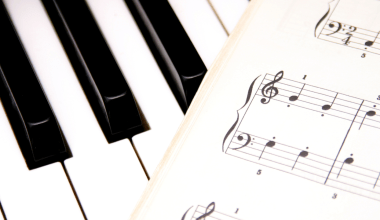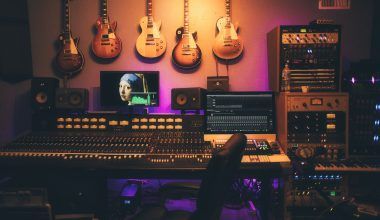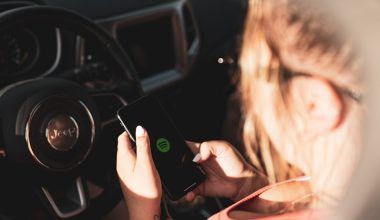Music Publishing Basics: The Beginner’s Guide
If you’ve ever written a song, you already have something valuable: your music. But what happens after you create a song? How do you make sure it earns you money, and how do you protect it from being used without your permission? That’s where music publishing comes in.
This guide explains music publishing basics in the easiest way possible. You don’t need any fancy knowledge or big industry connections to understand it. By the end, you’ll know how music publishing works, why it’s important, and how you can start using it to grow your music career.
What is Music Publishing?
Music publishing is about managing and making money from your songs. When you create a piece of music, it belongs to you as intellectual property. This means you have the legal right to control how it’s used and earn money when it’s played, streamed, or performed.
For example, if your song is played on the radio, streamed on Spotify, or used in a movie, you deserve to be paid. Music publishing ensures that money (called royalties) is collected and given to you.
Why is Music Publishing Important?
Many artists don’t think about music publishing when they start, but it’s one of the most important parts of a music career. Here’s why:
- Earn Money: Every time your song is played, you can earn royalties. This is a steady source of income for musicians.
- Protect Your Work: Publishing makes sure your songs are legally protected. No one can steal or use them without your permission.
- More Opportunities: Publishers can help get your music into TV shows, movies, and ads, which boosts your earnings and popularity.
Who Needs Music Publishing?
If you write, record, or produce music, you need to know about music publishing basics. This includes:
- Songwriters: Even if you don’t sing or perform, your lyrics and melodies are valuable.
- Singers and Artists: If you create original songs, you should protect and monetize them.
- Producers: Beats and instrumentals are also part of music publishing.
How Does Music Publishing Work?
Here’s a simple breakdown of how music publishing works:
- You Create a Song: When you write or record a song, it automatically belongs to you.
- Copyright Your Music: This step ensures your song is legally protected.
- Register with a PRO (Performing Rights Organization): Organizations like ASCAP or BMI help you collect royalties.
- Earn Royalties: Whenever your music is used commercially, you earn money.
Types of Royalties in Music Publishing
There are three main types of royalties you can earn through music publishing:
1. Performance Royalties
These are earned when your song is played in public places like radio, concerts, or restaurants. For example, if a band covers your song at a live event, you should get paid.
2. Mechanical Royalties
These come from the reproduction of your music. This includes physical sales (like CDs) or digital downloads and streams on platforms like Spotify or Apple Music.
3. Sync Royalties
When your music is used in TV shows, movies, or ads, you earn sync royalties. These can be a big source of income if your song gets featured in a popular project.
Common Terms in Music Publishing
Let’s make some key terms super easy to understand:
- Copyright: A legal document that says, “This song belongs to me.” It protects your music from being stolen.
- Licensing: When someone wants to use your music, they need a license. This is like renting your song for their project.
- Publishing Company: A company that helps you collect royalties and manage your music rights.
- Publishing Deal: An agreement between you and a publishing company. They promote your songs, and you share the earnings.
How to Start with Music Publishing?
Here’s a simple step-by-step guide to getting started:
Step 1: Write and Record Your Song
You don’t need to be a big star to start. Even a single song can be published if it’s original and recorded.
Step 2: Copyright Your Music
In many countries, you can register your song online. This ensures you can prove the song is yours if someone tries to claim it.
Step 3: Join a PRO (Performing Rights Organization)
These organizations make sure you get paid when your music is played in public. Popular PROs include:
- ASCAP (USA)
- BMI (USA)
- PRS for Music (UK)
- SOCAN (Canada)
Step 4: Choose a Publishing Option
You have three main choices:
- Self-Publishing: Manage everything yourself.
- Publishing Administrator: Use a service like SongTrust to collect royalties.
- Work with a Publisher: Sign a deal with a publishing company to handle everything.
Types of Publishing Deals
If you choose to work with a publisher, there are different kinds of deals:
- Traditional Publishing Deal
The publisher promotes your music and collects royalties. In return, they take a percentage (usually 10-50%). - Co-Publishing Deal
You share ownership of the song with the publisher. This gives you more control and earnings. - Administration Deal
The publisher only collects royalties for you but doesn’t own any part of the song.
Challenges in Music Publishing
Like any part of the music industry, publishing has its challenges:
- Understanding Contracts: Publishing agreements can be complicated. Always read carefully or get advice before signing.
- Global Royalties: If your song is played in different countries, collecting royalties can be tricky.
- Copyright Issues: Protecting your music from theft requires constant attention.
Tools and Services for Music Publishing
Today, technology makes it easier to handle music publishing, even for beginners. Here are some popular tools:
- SongTrust: Helps independent artists collect royalties worldwide.
- TuneCore Publishing: Offers services for royalty collection and song registration.
- Deliver My Tune: A platform that helps artists distribute music and manage royalties.
FAQs About Music Publishing
Q: Do I need a publisher to earn royalties?
A: No. You can self-publish and use services like SongTrust to collect royalties.
Q: How much do publishers charge?
A: It depends on the deal, but most publishers take 10-50% of royalties.
Q: Can I publish my music without a label?
A: Yes, publishing and record labels are separate. You can publish your music independently.
How to Make the Most of Your Music Publishing
Here are some tips to succeed in music publishing:
- Learn the Basics: Understanding terms like copyright and royalties will help you avoid bad deals.
- Promote Your Music: The more your songs are played, the more you earn. Share them on social media, streaming platforms, and live shows.
- Keep Your Rights: Be cautious about deals that require you to give up ownership of your music.
Conclusion
Music publishing might seem overwhelming at first, but it’s a powerful tool to grow your career. Understanding music publishing basics can help you protect your songs, earn money, and reach more people.
Start small, educate yourself, and use the tools available. Whether you choose to self-publish or work with a company, make sure your music is working for you.
Related Articles:
For further reading, explore these related articles:
- Understanding Publishing Rights in Music: A Complete Guide for Artists
- How to Publish My Music: A Complete Guide for Aspiring Artists
- Understanding Music Publishing Job Roles: A Comprehensive Guide
For additional resources on music marketing and distribution, visit Deliver My Tune.





